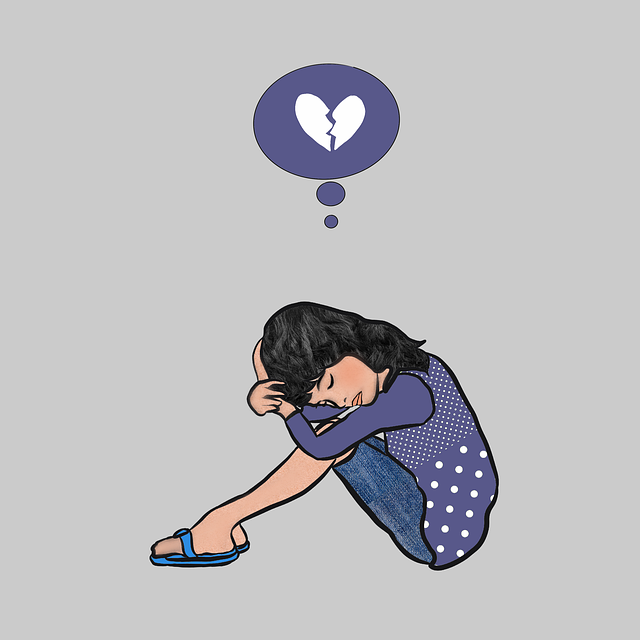Oregon follows a structured, safety-focused process for mental health commitments, beginning with qualified professionals assessing severe mental disorders and potential risks. After a court petition, hearings are held where evidence is presented, leading to a judge's decision based on history, prognosis, and least restrictive treatment options. Post-commitment support includes collaborative discharge procedures, specialized programs, regular check-ins, housing resources, and community-based services for long-term recovery.
Oregon takes a unique procedural approach to mental health commitments, prioritizing patient rights and comprehensive support. This article delves into the intricate steps involved in initiating a mental health commitment in Oregon, from initial assessments to legal protections. We explore the process in detail, covering everything from understanding the state’s framework to post-commitment discharge procedures. By examining these key aspects, we aim to provide insights for those navigating mental health commitments in Oregon, emphasizing the available support and rights throughout each stage.
- Understanding Oregon's Procedural Approach to Mental Health Commitments
- Steps Involved in Initiating a Mental Health Commitment
- Legal Rights and Protections During the Commitment Process
- Post-Commitment Support and Discharge Procedures in Oregon
Understanding Oregon's Procedural Approach to Mental Health Commitments

Oregon takes a structured and procedural approach to mental health commitments, ensuring that each step is carefully followed for the safety and well-being of individuals in need. This process involves several key stages designed to assess, evaluate, and provide appropriate care. The first step typically begins with an evaluation by qualified healthcare professionals who determine if an individual exhibits signs of a severe mental disorder and poses a danger to themselves or others. If the criteria are met, a petition is filed in court, initiating the commitment procedure.
This procedural approach continues with court hearings where evidence is presented, and legal arguments are made. The judge then decides whether to grant the commitment, considering factors like the individual’s history, prognosis, and least restrictive alternative options for treatment. This meticulous process guarantees that commitments are not taken lightly, ensuring that all avenues for less invasive interventions are exhausted before considering a more restrictive environment.
Steps Involved in Initiating a Mental Health Commitment

Initiating a mental health commitment in Oregon involves a structured process aimed at ensuring safety and appropriate care for individuals in crisis. The journey begins when a concerned individual or professional identifies a need for evaluation and potential hospitalization. This often stems from observations of severe symptoms, such as delusions, hallucinations, or serious risk to self or others.
Next, an application is submitted to the local court, triggering a series of hearings. During these proceedings, qualified professionals conduct comprehensive assessments to determine eligibility criteria. These include verifying the individual’s mental state and the presence of specific conditions outlined in Oregon’s commitment laws. If the court finds sufficient evidence, it issues an order for evaluation and potential treatment, marking the official initiation of the mental health commitment process.
Legal Rights and Protections During the Commitment Process

During the mental health commitment process in Oregon, individuals have specific legal rights and protections in place to ensure fairness and due process. The first step is an assessment by a qualified professional who determines if the person meets the criteria for a voluntary or involuntary commitment based on their mental state and potential harm to themselves or others. Throughout this process, the individual has the right to remain silent, consult with an attorney, and understand the nature of the proceedings against them.
If a court orders an involuntary commitment, the process involves multiple steps, including a hearing where evidence is presented. The person being committed has the right to challenge the evidence and argue their case. Protections include the right to appeal the decision and access to mental health professionals who can provide independent assessments. These measures ensure that the commitment is not only legally sound but also respectful of the individual’s rights during what can be a challenging time.
Post-Commitment Support and Discharge Procedures in Oregon

In Oregon, post-commitment support plays a pivotal role in ensuring individuals with severe mental health conditions receive continuous care and successful reintegration into society. After a person is committed through the mental health commitment steps, various discharge procedures are initiated to facilitate their transition back into the community. These processes involve collaborative efforts between healthcare professionals, case managers, and support services to provide comprehensive aftercare.
The state offers specialized programs and resources tailored to individual needs, focusing on recovery and resilience. This includes ongoing therapy sessions, medication management, peer support groups, and vocational rehabilitation services. Regular check-ins with treatment teams help monitor progress, address challenges, and make necessary adjustments to the care plan. Oregon’s discharge procedures prioritize a smooth transition, ensuring individuals have access to long-term support networks, housing resources, and community-based services to maintain stability and promote recovery in their everyday lives.






